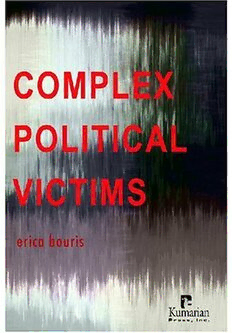
Complex Political Victims PDF
224 Pages·2007·0.804 MB·English
Most books are stored in the elastic cloud where traffic is expensive. For this reason, we have a limit on daily download.
Preview Complex Political Victims
Description:
Images of the political victim are powerful, gripping, and integral in helping us makes sense of conflict, particularly in making moral calculations, determining who is "good" and who is "evil". These images, and the discourse of victimization that surrounds them, inform the international community when deciding to recognize certain individuals as victims and play a role in shaping response policies. These policies in turn create the potential for long term, stable peace after episodes of political victimization. Bouris finds weighty problems with the dichotomous conception of actors in a conflict, which pervades much of contemporary peacebuilding scholarship. She instead argues that victims, much like the conflicts themselves, are complex. Rather than use this complexity as a way to dismiss victims or call for limits on the response from the international community, the book advocates for greater and more effective responses to conflict.
See more
The list of books you might like
Most books are stored in the elastic cloud where traffic is expensive. For this reason, we have a limit on daily download.
